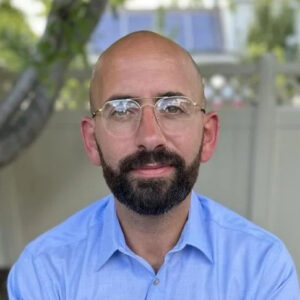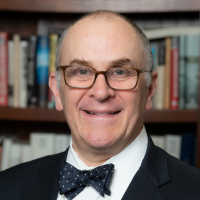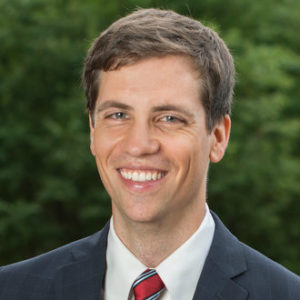Prince & Tyrant
Consider Shakespeare’s depiction of tyranny & kingship.
Weekly | Mondays, October–November 2024
Online Seminar
Shakespeare’s Hamlet treats the age-old conflict between pagan and Christian morality and the spiritual tension in which it long kept Western man. But it does so in a decidedly modern context. The landscape of Denmark is changing. Its feudal orders, the Church, and imperial wars have begun to slip into the past, as an international order, with its markets, universities, leisure travel, and technology, assumes their place.
Caught in the middle of this transition is the impressive young man Hamlet, “th’observed of all observers”—all eyes are on him: heir to throne of Denmark, he is fiercely intelligent and quick with a witticism, but also proud, daring, and often shockingly rash. And now he’s troubled. Early on, he finds himself tasked by the ghostly apparition of his dead father, still stinging under the pain of hellfire, to seek pagan-style revenge against his Machiavellian uncle. Hamlet is thus forced to settle that age-old conflict, yet as it gives way to the modern, Machiavellian order, and he must do so using the one tool available to him: the meticulous care indicative of his studies at Wittenberg. Hamlet must act rightly, yet what is right and good, long a matter of conflict, has now become a matter of academic debate. Hamlet is faced with an urgent political crisis, but the tools he’s been given seem wholly anathema to decisive action.
Readers often accuse Hamlet of navel-gazing to the point of unconscionable delay. But Hamlet accuses himself of this no less. His situation is very much our own, as we find ourselves heir to multiple traditions whose authority has waned and access to which is granted primarily through books. As is our way, we will try to address this dilemma by reading Hamlet.
Image: Hamlet, Act IV, Scene V (Ophelia Before The King And Queen), Benjamin West, 1792.
Hamlet with Alex Priou
This course takes place weekly on Mondays, via Zoom, from 6 PM to 8 PM ET. Fellows will receive a $150 stipend contingent upon participation in the course and completion of a brief response paper. All course materials will be provided.

Alex Priou is an Associate Professor of Political Theory at UATX. His research and teaching both focus on the history of political philosophy, with specialization in Plato and the Pre-Socratic poets and philosophers. He often writes for a broader audience on his Substack and Public Discourse and is the co-host of a weekly podcast The New Thinkery where he discusses a broad array of texts philosophical, historical, political, and literary.

Alex Priou is an Associate Professor of Political Theory at UATX. His research and teaching both focus on the history of political philosophy, with specialization in Plato and the Pre-Socratic poets and philosophers. He is the author of three books: Becoming Socrates: Political Philosophy in Plato’s Parmenides (2018), Defending Socrates: Political Philosophy Before the Tribunal of Science (2023), and Musings on Plato’s Symposium (2023). He often writes for a broader audience on his Substack and Public Discourse and is the co-host of a weekly podcast The New Thinkery where he discusses a broad array of texts philosophical, historical, political, and literary.
Readings:
Discussion Questions:
Readings:
Discussion Questions:
Readings:
Discussion Questions:
Readings:
Discussion Questions:
Readings:
Discussion Questions:
Readings:
Discussion Questions:

Vickie Sullivan
Vickie Sullivan is the Cornelia M. Jackson Professor of Political Science and teaches and studies political thought and philosophy. She also maintains teaching and research interests in politics and literature. She has published extensively on Montesquieu and Machiavelli and is the co-editor of Shakespeare’s Political Pageant.

Jenna Silber Storey
Jenna Silber Storey is a senior fellow in the Social, Cultural, and Constitutional Studies department at the American Enterprise Institute (AEI), and co-director of AEI’s Center for the Future of the American University. She is concurrently an SNF Agora Fellow at Johns Hopkins University, and a research fellow at the Civitas Institute at the University of Texas at Austin. She also serves on the executive committee of the Alliance for Civics in the Academy.

Eliot Cohen
Eliot Cohen is the Robert E. Osgood Professor at the Johns Hopkins University’s School of Advanced International Studies (SAIS) where he has taught since 1990. He served as Dean of SAIS from 2019 to 2021. In addition to public service in the Department of Defense he served as Counselor of the Department of State from 2007 to 2009.

Ryan P. Hanley
Ryan Patrick Hanley is Professor of Political Science at Boston College. His research in the history of political philosophy focuses on the Enlightenment. He is the author of Our Great Purpose: Adam Smith on Living a Better Life and Love’s Enlightenment: Rethinking Charity in Modernity.

Antón Barba-Kay
Antón Barba-Kay is Associate Professor of Philosophy at The Catholic University of America, in Washington, D.C. (He is also, at the moment, Visiting Professor of Humanities at Deep Springs College, in California.) He earned his Ph.D. from the University of Chicago’s Committee on Social Thought, with a dissertation on Hegel’s Phenomenology of Spirit. The bulk of his research has concentrated on the subjects of recognition and aesthetics in nineteenth-century German philosophy. He is also writing a book about the political and philosophical implications of the digital revolution.

Matthew Continetti
Matthew Continetti is resident fellow at the American Enterprise Institute, Prior to joining AEI, he was Editor in Chief of the Washington Free Beacon. His articles and reviews have appeared in The New York Times, The Wall Street Journal, and The Washington Post.